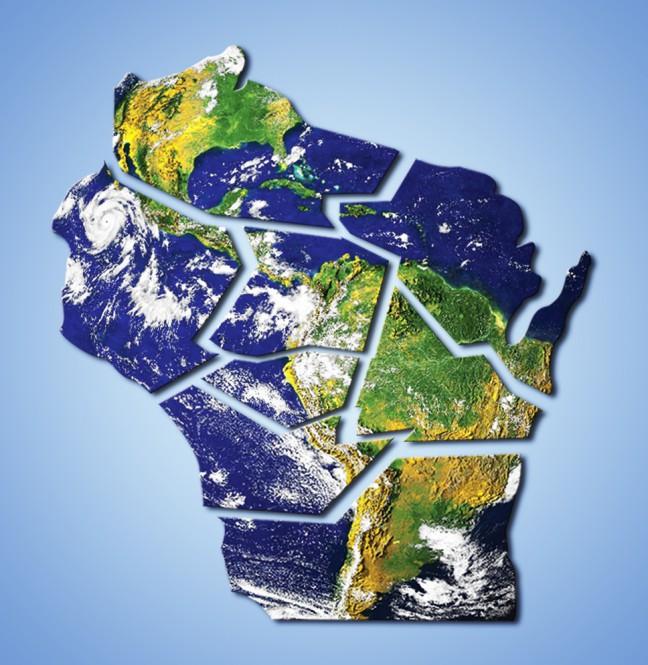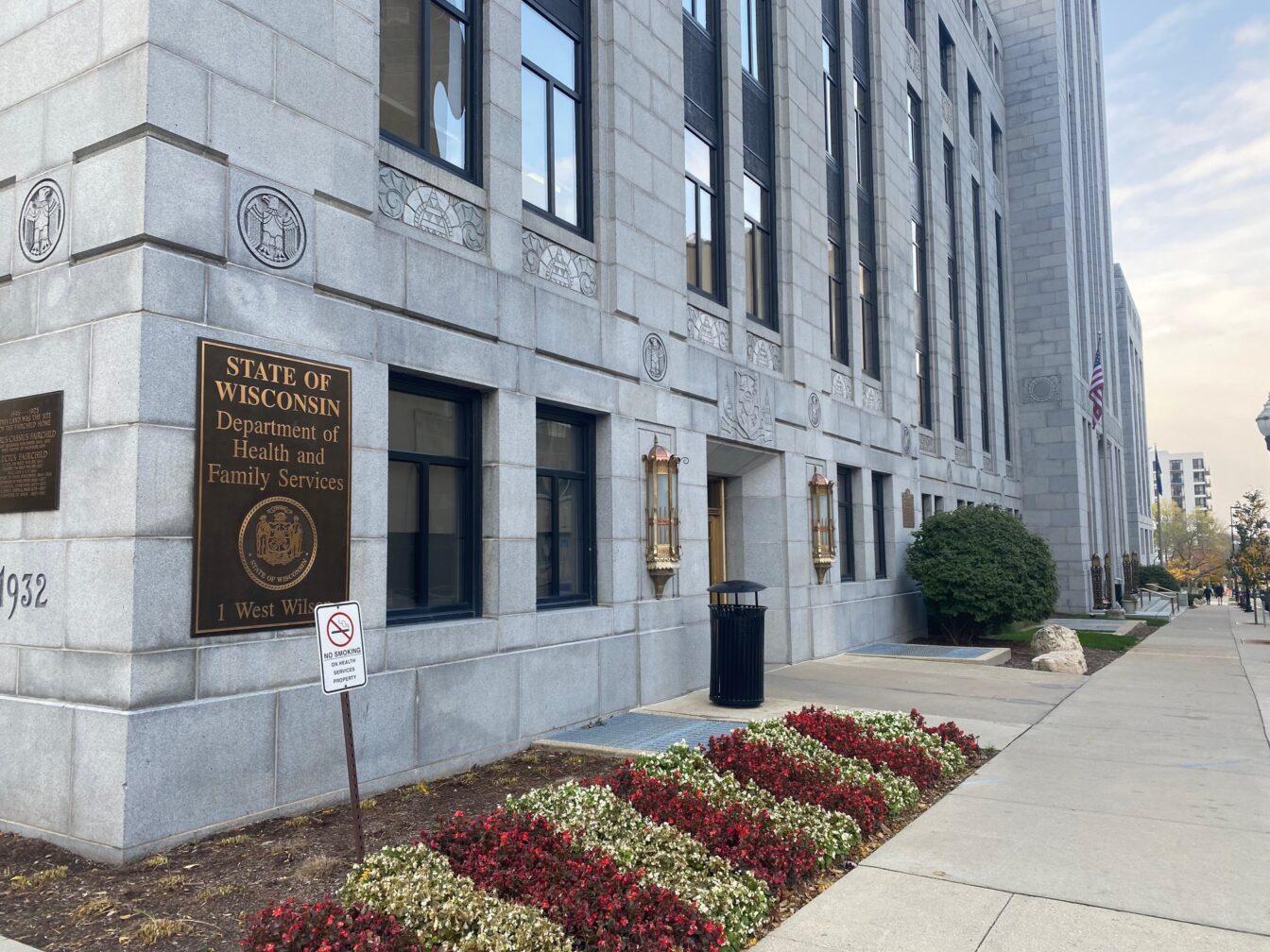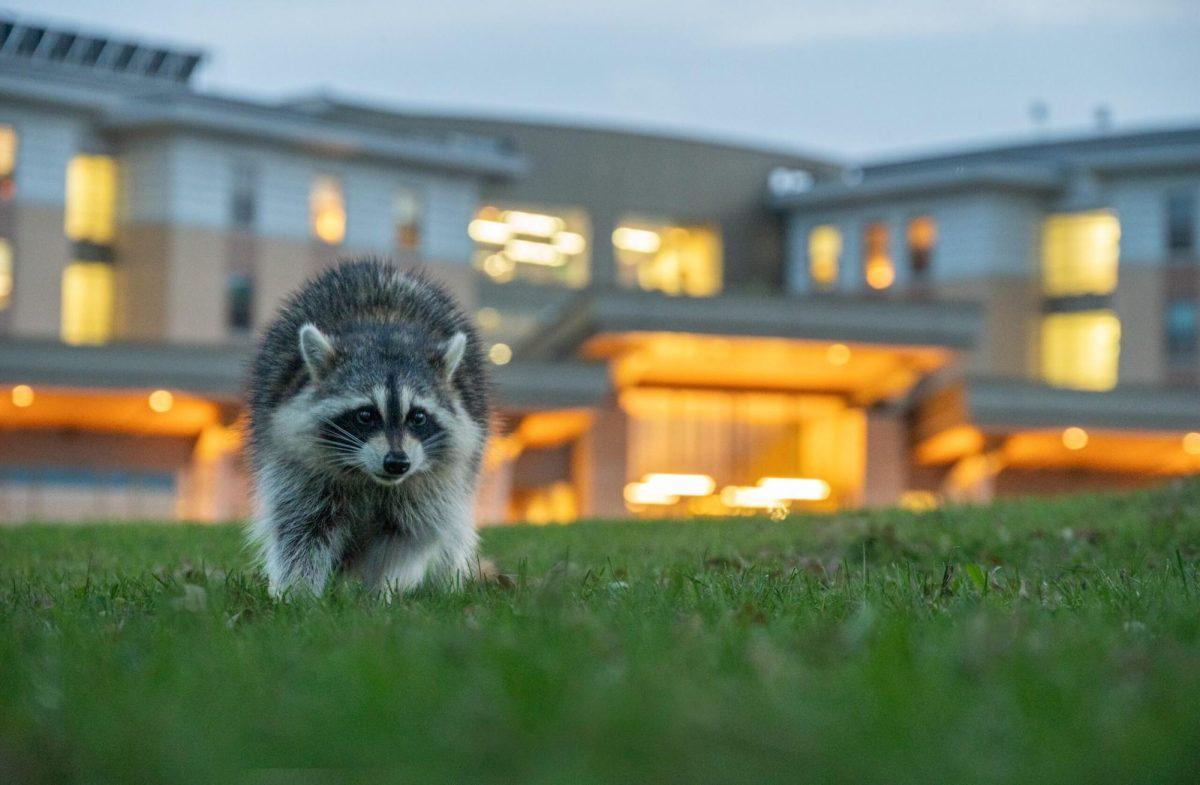Without Wisconsin’s “conservation” governor, the upcoming 46th Earth Day would not exist.
Gaylord Nelson created the day dedicated to motivating human action toward protecting the environment. The idea came to him one day in 1969 when he was reading an article about how anti-war teach-ins on college campuses were reshaping the dialogue on the Vietnam War, Tia Nelson, his daughter and managing director for Climate for Outrider Foundation, said.
“In that moment, he snapped his fingers and said, ‘That’s it. I’m going to call for an environmental teach-in,'” Tia Nelson said. “Never in his wildest dreams could he have imagined that that simple idea, the idea of setting aside a day to teach about the environment, would precipitate the environmental decade.”
Gaylord Nelson, who died in 2005, left behind a legacy of environmental protection and education. Now, University of Wisconsin’s Nelson Institute for Environmental Studies strives to keep his traditions alive by giving students the tools they need to become leaders in addressing environmental challenges.
Becoming Wisconsin’s “conservation governor”
Gaylord Nelson grew up in Clear Lake, a small town in northwestern Wisconsin. There, nature was his playground, Tia Nelson said. The places he had a passion for as a child became a few of the many places he would go on to protect as an adult.
“Those experiences he had as a child formed who he was and who he became,” Tia Nelson said.
When Gaylord Nelson was 10 years old, his father took him to see former U.S. Sen. Bob La Follete Jr., R-Wisconsin, speak in a nearby town. He was so inspired that on the way home, he told his father he wanted to be U.S. senator someday, Tia Nelson said.
Gaylord Nelson attended University of Wisconsin Law School. After serving in World War II and then briefly practicing law in Madison, he was elected to the state Senate in 1948. Ten years later, he became the state’s first governor from northern Wisconsin. He would go on to be known as Wisconsin’s “conservation governor.”
While campaigning, Gaylord Nelson promised extensive reforms. He created the Department of Resource Development and established the Youth Conservation Corps, which created environmentally friendly jobs for more than 1,000 unemployed people. Gaylord Nelson was also responsible for the purchase of 1 million acres of land for parks in Wisconsin via the Outdoor Recreation Acquisition Program.
Following two terms as governor, Gaylord Nelson was elected to the U.S. Senate. During his time in Washington, he strove to make environmental issues the focus of a national conversation. He authored and sponsored pivotal environmental laws, including the Wild and Scenic Rivers Act, the Wilderness Act, the Environmental Education Act and more. Gaylord Nelson was an advocate for protecting Wisconsin’s landscapes, including the Apostle Islands on Lake Superior, which he helped designate as a national lake shore.

Wisconsin Historical Society
But Gaylord Nelson is most known for creating a day devoted to celebrating the protection of the environment — Earth Day.
Founding Earth Day
Gaylord Nelson’s idea for Earth Day was met with overwhelming support. With help from the media, his idea was heard all over the country, and Americans embraced it. Twenty million people participated in teach-ins, talks and demonstrations on April 22, 1970 to voice their concerns for clean air, water and a sustainable future, according to Earth Day Network. Thus, Earth Day as it is known today was born.
Gaylord Nelson had created the widespread interest in the natural environment that he spent much of his career working for. This new era in environmental legislation ushered in the Clean Air Act, the Clean Water Act, the Endangered Species Act, the Safe Drinking Water Act, an executive order that created the Environmental Protection Agency, among many others.
Despite the success of Earth Day in creating national environmental legislation, Nelson firmly rejected a top-down approach. It was his style to think global, act local, Paul Robbins, UW’s Nelson Institute for Environmental Studies director, said.
“What’s great about Earth Day is the enormous humility of what he was doing,” Robbins said. “All over the country people had teach-ins and conversations. That is totally the Gaylord Nelson approach — he had a very gentle touch, but he got huge things done.”

Wisconsin Historical Society
A change in focus
Tia Nelson said Wisconsin has seen a lack of progressive environmental legislation in recent years, particularly in budget cuts to the Department of Natural Resources. Eighteen scientists and 11 educators were eliminated from the agency this year.
Mark Redsten has been president and CEO of Clean Wisconsin for 16 years and said he has never seen such dramatic cuts to the DNR. The DNR announced some restructuring will take place to compensate for lost positions, but what that process will entail is still undecided, he said.
“I think generally our concern is that there is an emphasis on speedy permit approvals and ‘customer service,’ but not enough attention on some of the issues we care about most: clean air and clean water,” Redsten said.
Republican legislators made cuts to the scientist positions partially because of their focus on controversial research, such as climate change and the impacts of mining, Redsten said.
But Cathy Stepp, DNR secretary and former state senator, said in a statement that the DNR is committed to “going lean and staying lean.”
Stepp supported Walker’s removal of decision-making power from the DNR’s Natural Resources Board in February and said she supports streamlining government.
“We were the first state agency to undergo lean government exercises to eliminate unnecessary red tape and time delays,” Stepp said.
The state Legislature has also recently slashed funding and increased user fees for state parks. No other state parks system in the country is operated solely on user fees, according to 2015-16 legislative session recap from Clean Wisconsin.
“Our outdoors are an absolutely integral part of what makes us Wisconsinites,” Redsten said. “It really feels out of sync with who people are in Wisconsin to be eliminating funding from state parks. I think these short term efforts to eliminate funding will have some pretty significant short-term impacts, but ultimately the people of Wisconsin who care deeply about the environment will push back [against this].”
Clean Wisconsin’s recap also outlined several environmentally related policies Wisconsin passed this year. Wisconsin was the seventh state to pass a law eliminating personal care products that use microbeads and a bill restored $3 million in recycling grants, among other environmental legislation.
“What’s great about Earth Day is the enormous humility of what he was doing.That is totally the Gaylord Nelson approach — he had a very gentle touch, but he got huge things done.”
Hope for the future
The Nelson Institute continues to strive to keep scientific education and research alive in Wisconsin through various research efforts. Its four main centers include the Center for Climatic Research, Center for Culture, History and Environment, Land Tenure Center and Center for Sustainability and the Global Environment.
Robbins said environmental studies can only be an additional major, allowing students to take the knowledge they learn from environmental studies and apply it to other subjects they care about.
The Nelson Institute places value on the ability of their students to be problem solvers, Robbins said. All undergraduates are required to take a capstone course to be involved in a project they really care about, she said. These classes offer hands-on opportunities for students to solve problems on a local level, she said.
The institute also houses three graduate programs, according to its website. Graduate students work on a variety of projects, from solving water quality issues across the state to working on parks management in China.
Unlike the majority of Ph.D. students in other programs, most of those in the Nelson Institute do not become professors — they become problem solvers, Robbins said.
Erin Thomas, a fourth year Ph.D. student in atmospheric sciences who works with the Center for Climatic Research, says the interdisciplinary style of teaching in the Nelson Institute is one of the most valuable aspects of her education at UW. Her undergraduate major was meteorology, but the institute has helped her see the human aspect of environmental issues, she said.

Katie Cooney/The Badger Herald
Thomas is currently studying El Niño events — a warm phase of recurring climate patterns — which could change drastically in duration and frequency in the near future.
Individuals like Thomas, who are dedicating their lives to research supporting the earth, help keep Gaylord Nelson’s legacy alive, Tia Nelson said.
“I think whether you look at the glass as half full or half empty, it is worth pausing to celebrate the fact that to this day, the inspiration behind Earth Day, the genius behind it, was that it empowered and inspired individual action,” Tia Nelson said. “And today there are examples of individuals taking action to protect the environment wherever you look.”
The Nelson Institute’s 10th annual Earth Day conference will take place Monday, April 25, at the Monona Terrace Community and Convention Center.
Rep. John Nygren, R-Marinette, Sen. Alberta Darling, R-River Hills, and Rep. Thomas Tiffany, R-Hazelhurst, did not respond to requests for comment.




















